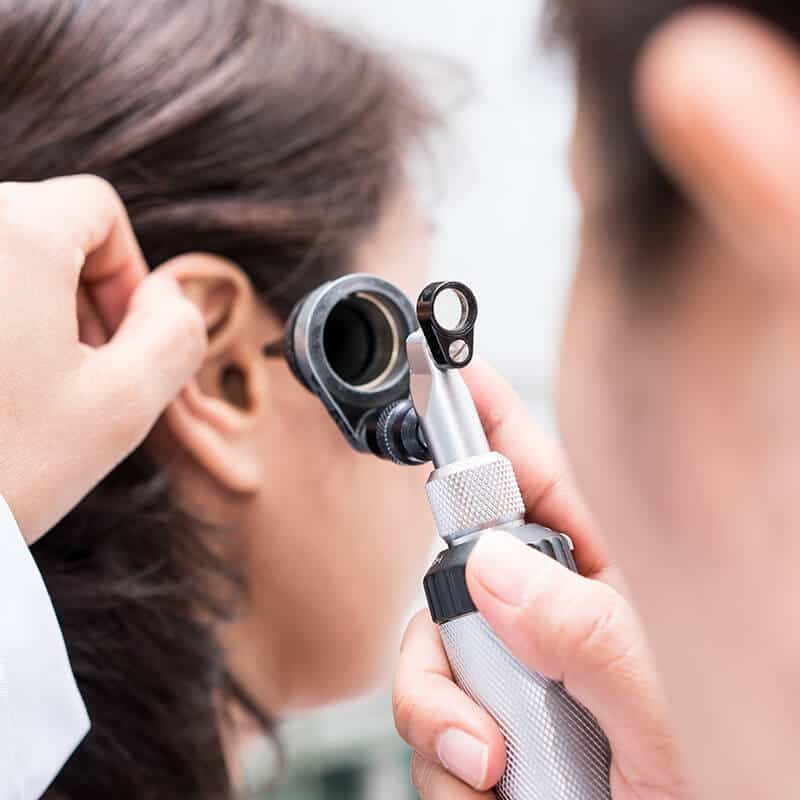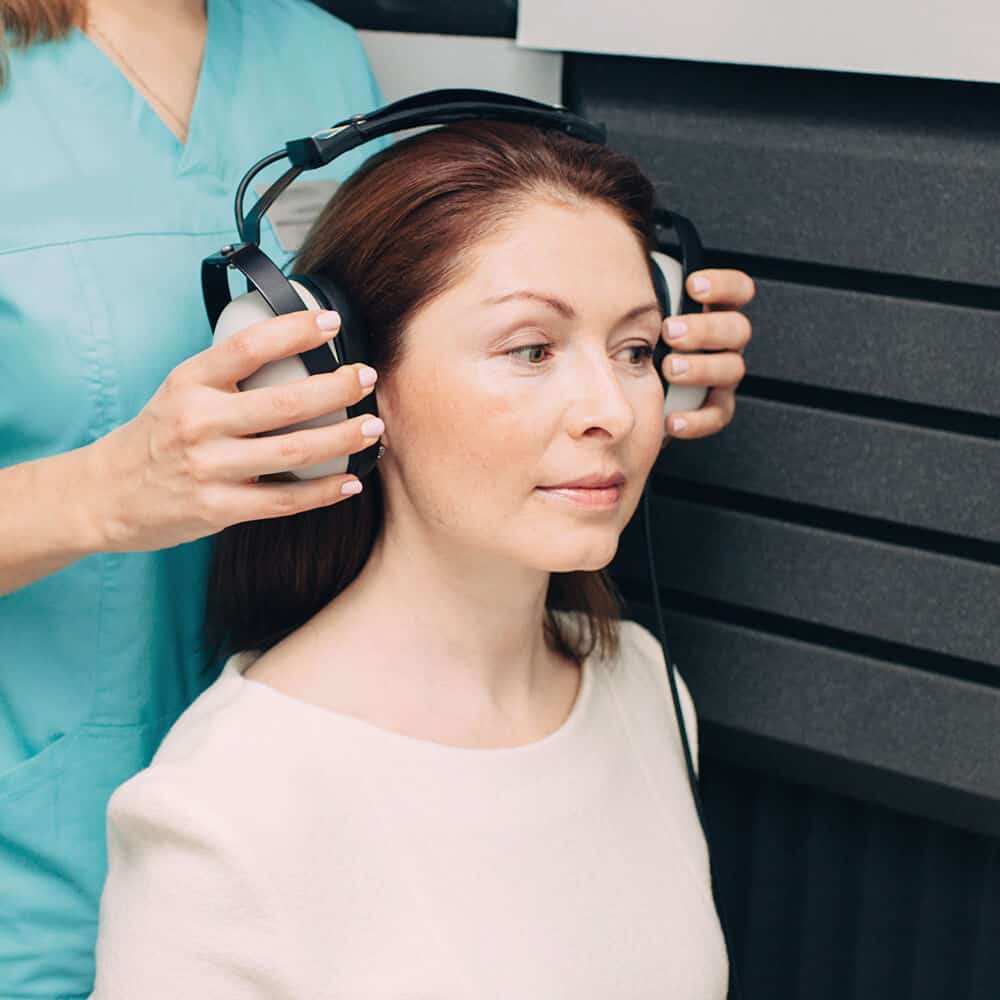Hearing Test
If you have difficulty hearing properly, the best single step you can take is to arrange an appointment with an experienced audiologist today. A thorough hearing test will help you assess whether you have hearing loss and how severe your hearing loss is. Also, it will provide useful insight into how best to handle your hearing loss.
What can you expect from a hearing test? We'll take you through it here, step by step.

When you suffer from hearing issues, the audiologist may try to get to the root of them and find the best care possible. We will start the appointment with this in mind by gathering some background information on how it affects your daily life, as well as a short medical history. This includes your:
- Medical background
- Medicines taken
- Lifestyle
- Family history
This information also allows the audiologist to spot possible hearing hazards before the tests have begun, depending on how sensitive you are to loud sounds or whether you have any family history of auditory-related issues.


Your hearing specialist will instruct you to sit in a quiet space after the physical test and give you guidance for a series of hearing tests. They are carried out in a soundproof room, and you'll be asked to wear headphones.
Pure-tone test: The test administrator will play a series of sounds in each of your ears that differ in frequency and volume; when you hear a sound, push a button or raise your hand. The tests will be reported on an audiogram, which will include a comprehensive evaluation of the sound frequencies within your hearing range and the level of hearing in each ear.
Speech recognition test: Your hearing expert can read a series of words at varying levels and distances from you during the speech examination. You will be told to repeat what you've heard. This is vital because speech comprehension is often impaired for those with hearing loss, causing difficulties understanding well in social situations with a lot of background noise, noisy environments, or young children's voices.
The audiologist also checks, in some cases, the real ear structures. A tympanogram test, for example, would assess how well the eardrum and middle ear are functioning. An auditory brainstem response measures the brain's reaction to sound. All this provides a well-rounded measure of your hearing capacity, and what help you might need.

How long does testing take?
Most individual tests only take a few minutes, with the most extensive kind of exam – speech examination – only taking about 15 minutes. Nonetheless, most hearing tests require several forms of reviews, and this can add up to about half an hour of testing.
Add that to the discussions you're going to have with us before and after the tests, and we'd estimate that a typical consultation shouldn't run over an hour.
How often should I get tested?
A hearing test is a recommended part of your annual physical every three to five years, beginning at age 18 and lasting until you're 50. Since hearing loss sometimes happens slowly, it can be hard to know when you've got it. This is why scheduling an appointment with an audiologist to develop a baseline hearing test is so critical.
